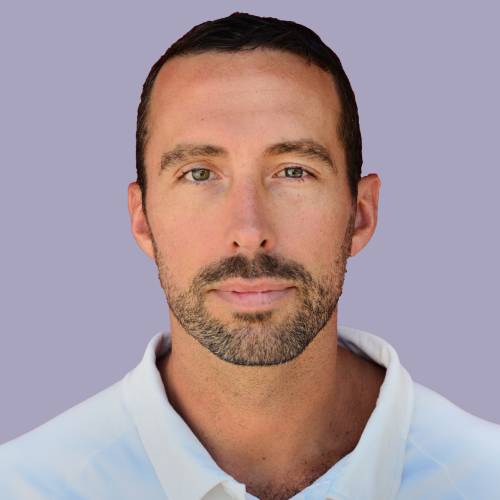The phrase “losing weight” often brings to mind frustration, memories of avoiding foods or gatherings we enjoy, feeling hungry, or feelings of failure.
Diet culture tells us to eat less and lose weight – oftentimes promoting diet plans for less than 1,000 calories per day! Does that mean we have to resign ourselves to a life of being overweight or not feeling good or having a preventable disease? Absolutely not! Eating less is not always the answer – Eating less could be WHY you are struggling to lose weight.
Cutting calories is not always easy, especially when high-calorie food options surround us. Learn to give our body what it needs instead of focusing on cutting calories.
Calories In Vs. Calories Out – The Energy Balance
Generally, this means that if we take in more calories than we burn, we will gain weight. The opposite is also true, that if we eat less calories than we use, we will lose weight. While these are true statements, it turns out that many other factors come into play when it comes to weight management – that is why eating less is not always the answer!
Outside of the “calorie balance,” there are many other factors that affect weight management:
- Appetite
- Hormones
- Environment
- Genetics
- Marketing
- Culture
- Disease states
- Stress
- Sleep quality
- Physical activity level
When we drastically decrease our calories, it affects the hormones which affect metabolism.
Ghrelin, the hormone responsible for hunger, will shoot up when we aren’t eating as much or as often and makes us feel hungry all the time. When we feel really hungry, it is much harder to stick with healthy balanced choices! Many other things affect how much we eat. For example, studies show we eat more when eating with friends than when eating alone.
Calorie Burn
Many factors affect the number of calories we burn, such as basal metabolic rate (BMR) and daily physical activity. Our BMR is the estimated amount of calories our body needs when at rest. It is influenced by age, gender, height, and body composition. Day-to-day movements such as going grocery shopping, chasing our kids, and vacuuming the house, are as much a part of this as an organized physical activity such as running or doing a workout.
Top 3 Signs that you aren’t eating enough
Sign #1 CONSTANT hunger or cravings
Sign #2 MOODINESS
Sign #3 Sleep and/or stress ISSUES!
We may also experience other symptoms, such as feeling tired or exhausted, hormone imbalances, hair loss or thinning hair, brittle nails, feeling cold all the time, bowel movements every few days, fighting sickness, injury, or constant soreness. We may also feel we are never hungry during the day and find it easy to skip meals but then are insatiable come night time.
Sign #1 Constant Hunger
While it seems logical that a decrease in calories will result in hunger, we should actually eat enough food so that we aren’t feeling hungry. Choosing more whole-food options to provide more volume into your meals and balancing your meals and snacks is a great way to combat that. One of the easiest ways to start balancing your meals is by rethinking your plate using the PLATE METHOD!
1/2 non-starchy veggies
1/4 lean protein
1/4 starchy carbs
a healthy amount of healthy fat
Tips to Stave off Hunger
1. Eat your veggies and protein first, leaving your starchy carbs last.
2. Remove distractions such as TV or phones from meals and snack times.
3. Eat mindfully and slowly. Allow yourself about 20 minutes to enjoy a meal.
4. Aim to get ½ of your body weight in oz of water daily to stay hydrated
Sign #2 Moodiness
You know what comes with being hungry all the time… feeling HANGRY!!! So what is happening that causes us to feel irritable or short-tempered when we are hungry? When we start to eat less, our blood sugar drops. This can trigger a cascade of increased hormones, including cortisol and adrenaline. It is your body’s way of “fixing” the low sugar levels, leaving us feeling more agitated.
Leave HANGY behind
Eat smaller, more frequent meals or include balanced snacks between meal times. This helps to stabilize your blood sugars and prevent hormone imbalances.
Sign #3 Sleep and Stress Issues!
You have likely heard that sleep deprivation has been linked to insulin resistance and weight gain. But did you know that under-eating while following strict dietary patterns can also interrupt the quality of sleep?
One small study followed 10 young women dieting for 4 weeks. These participants had difficulty falling asleep and experienced less overall deep sleep. Another study found that starvation-level calorie restriction led to a reduction in slow-wave sleep and deep sleep patterns. This can definitely alter our stress levels! Another study of more than 2500 Australian teens found that “extreme dieting” was not only associated with decreased sleep quality but also high levels of depression and anxiety. This alters yet another important hormone in our health and wellness journey: cortisol.
Cortisol is often called the “stress hormone” because it is released in response to stress. High cortisol levels can inhibit weight loss! Constantly limiting your calories leads to a lack of sleep and increased levels of stress, raising your body’s cortisol level. Elevated cortisol levels will not only alter our metabolism but will also cause water retention which may mask fat loss and lead to more frustration and stress.
Focus on the JOURNEY
Weight loss is NOT a hopeless cause! Try thinking about it this way – rather than focusing on the result of weight loss, focus on the journey of building healthy habits. Make eating less about restrictions and more about exploring and enjoying more whole food options that provide fewer calories than processed foods. While processed foods are more convenient, whole foods provide WAY MORE vitamins, minerals, phytonutrients, and volume! You will likely find that you can get to and maintain a healthy weight by eating more food than you were before when focusing on eating more whole foods!
Working with a nutrition coach can help you find the right way to fuel your body for workouts and the demands of your life in a way that you enjoy and can maintain. Our goal is to get you eating as many calories as possible while feeling healthy and strong! Rather than getting sucked into fad diets and the seemingly endless cycle of under-eating, reach out to our team of professionals who can guide, help you build a plan, and keep you accountable for reaching your goals!
Megan Davis, MS, RDN, CF-L1







